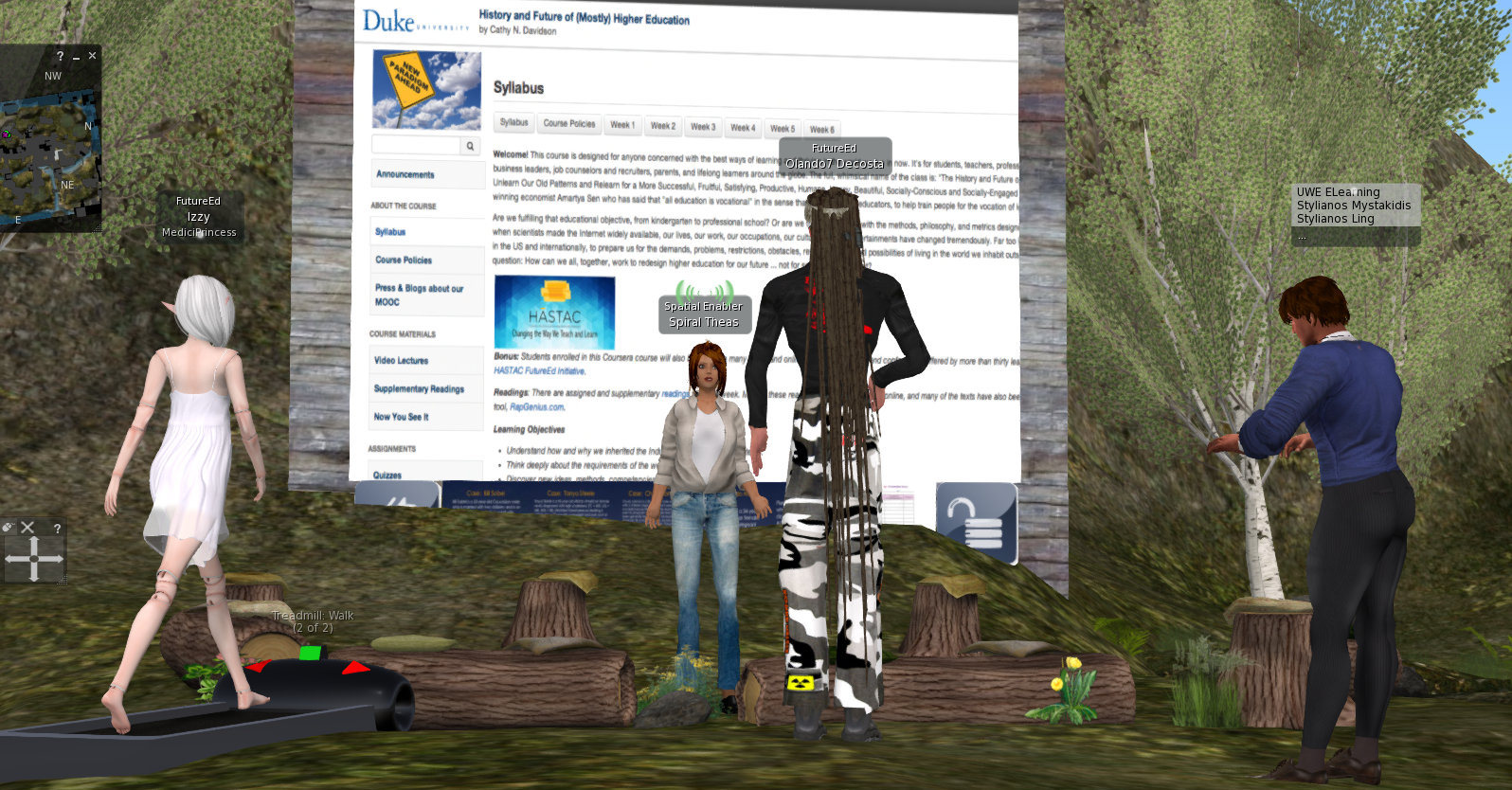I’ve taken a few MOOCs now. All great. All different. Here’s what I think works best.
MOOCs are progressive! Their openness offers knowledge to a wide range of students.
MOOCs are regressive! We’ve been trying to move from Sage on the Stage education to more active experiences. Yet MOOCs reprivilege the 1-to-many format with the Doc on a Laptop.
Even though most MOOC courses are not part of university degree programs, they still support that model of misattributed learning. So many university students focus on grades & diplomas instead of knowledge and experience. They replace the intrinsic value of knowledge and experience with the extrinsic reward of their name printed on a pretty piece of paper. By having quizzes and offering certificates MOOCs create a focus on watching the professor’s videos and remembering enough of them to answer questions.
If your goal is to learn programming platform X to a proficiency level of Y, this might be a functional scenario. But for many areas of knowledge where critical thinking and activities that produce solutions are key, the MOOC quiz and certificate seem too much like a reinforcement of the old, ineffective models of learning.
What if we got rid of certificates in MOOCs? And got rid of quizzes? What if we got rid of some, or much, of the professor’s videos?
In a busy world with a complex subject and way too many posts on sprawling forums, the easy focus of:
- Watch Prof’s videos
- Answer quiz questions
- Maybe create essays or projects
- Claim your certificate
can be comforting. But also too easy. What if we took all that away? The massive part of MOOCs is democratizing. But “massive” is a crappy, disconnected way to learn and grow. It takes a village. What is great about massive is that you can find others who you want to work with. What if you found a half dozen peers in your MOOC and then were tasked with interacting, creating, and experiencing?

